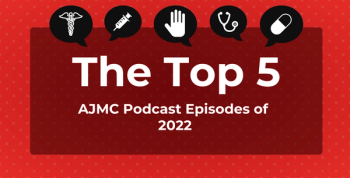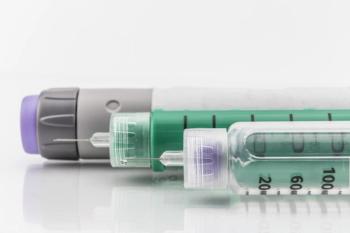
Diabetes
Latest News
Latest Videos

Podcasts
CME Content
More News

Research showed that a mean of 19.5%, 17.1%, and 43.3% of adults with diabetes did not maintain continuity in use of medications to lower glucose, blood pressure, or lipid levels, respectively.

Treatment strategies for diabetes should include a comprehensive approach involving multidisciplinary care teams.

Treatment strategies for diabetes should include a comprehensive approach involving multidisciplinary care teams.

Adults with diabetes who were forced to switch from an employer-sponsored health plan to a high-deductible health plan (HDHP) were 25% more likely to require an emergency department (ED) or hospital visit for hyperglycemia, but not for hypoglycemia, than those who did not switch plans.

Cardiovascular risk can be significantly impacted by the presence of diabetes.

Experts highlight key factors when considering costs associated with diabetes treatment pathways.

Eli Lilly will tack on $450 million more to increase capacity in a diabetes drug plant in light of shortages; patients emailing and messaging medical providers online might be charged; 57% of adults in a recent survey think that the federal government should secure health care coverage for all Americans.

A new study highlighted that patients with diabetes enrolled in Medicare Advantage (MA) had better outcomes compared with patients in traditional fee-for-service (FFS) Medicare.

Adequately treating diabetes demands an array of considerations and therapy strategies.

Dr Handelsman drives a conversation surrounding the management of A1C levels.

Small practices reduced their use of telemedicine during early stages of the COVID-19 pandemic. Technical support may help expand and maintain telemedicine in small practices.

Updated guidelines include 13 recommendations and 52 practice points for clinicians treating patients with diabetes and chronic kidney disease (CKD).

Key opinion leaders discuss the role of combination therapies in the management of diabetes.

Managing hypertension is a critical aspect of diabetes disease management.

A review showed lifestyle intervention was linked to a 24% reduction in type 2 diabetes (T2D) incidence among women with prior gestational diabetes, compared with standard of care.

The panel shares insights into the evolution of treatment strategies for patients with diabetes.

A panel of experts discuss considerations in insurance coverage for the treatment of patients with diabetes.

With data collection beginning on January 1, 2023, most health systems are not prepared for CMS’ new glycemia measures, and those that are will likely be floored by the results, according to the chief medical officer at Glytec.

The top 5 most listened to podcast episodes on AJMC.com in 2022 provided expert commentary on diabetes, lung disease, health policy, Parkinson disease, and more.

The top 5 most-read articles about diabetes featured stories on FDA approvals, drug prices, and the effectiveness of vitamin D in diabetes prevention, among others.

The new federal spending bill includes changes to Medicaid enrollment, postpartum coverage, and other health programs; new research shows widened disparities among US adults with diabetes using insulin; in 2022, the Drug Enforcement Administration confiscated more than 379 million fentanyl doses.

A new study has found that Mexican Americans and non-Hispanic Black Americans had low rates of glycemic control compared with non-Hispanic White Americans.

The staff clinician group with access to the Enhanced Primary Care Diabetes model was found to improve their diabetes care quality.

Jaime Murillo, MD, discusses the impact of diabetes on cardiovascular disease.

Yehuda Handelsman, MD, FACP, FNLA, FASPC, MACE, leads a discussion surrouding early intervention in the management of type 2 diabetes.
















